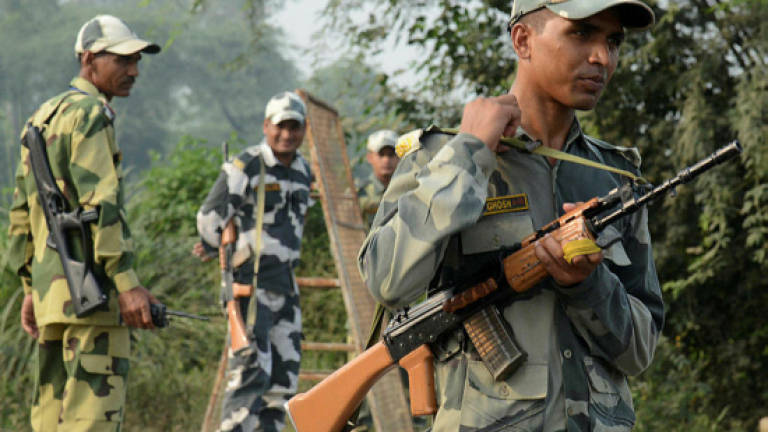Five things that led to India's strikes in Pakistan

NEW DELHI: India's Prime Minister Narendra Modi raised hopes of a new era in relations with Islamabad when he paid a surprise Christmas Day visit to his Pakistani counterpart Nawaz Sharif.
In the months since, relations between the nuclear-armed archrivals have unravelled, culminating in the Indian military's strikes this week on militants along the de-facto border with Pakistan in Kashmir that prompted a furious response from Sharif.
Here are five reasons why the strikes occurred.
Pathankot attack
Just days after Modi's holiday visit to Sharif, militants from across the Pakistan border launched an audacious attack on an Indian airforce base that left seven soldiers dead.
India blamed the raid at Pathankot in Punjab state on a Pakistan-based militant group that also staged a 2001 attack on the Indian parliament.
Modi urged Sharif to take action against those responsible, which the Pakistani premier promised to do. But India became frustrated with what it sees as Pakistan's lacklustre response.
"India responded to that attack with measure and reason. Modi invited Pakistan investigators to come over and gather evidence for example, and such a strategy wasn't successful," said Ashok Malik, senior fellow at the Observer Research Foundation, a policy organisation in New Delhi.
Deadly Kashmir protests
Indian-administered Kashmir erupted in violence in July after a popular militant leader was killed in a gun battle with security forces.
India slapped a curfew on the restive Himalayan region to try to stem the protests, and internet and mobile phone services were snapped.
But residents continued to take to the streets to protest Indian rule, with more than 80 people killed in the ongoing unrest, mostly in clashes with security forces.
Kashmir is divided between Pakistan and India, but both claim the territory in full and they have fought two of their three wars over its control.
Militant groups, some based in Pakistan, have battled India's security forces for years for independence of the Muslim-majority territory from India or its merger with Pakistan.
Sharif accused India's security forces of carrying out brutalities against unarmed civilians during the protests, further stoking tensions between the neighbours.
Uri army base
On Sept 18, militants staged a predawn raid on an Indian army base near the de-facto border dividing Kashmir, killing 19 soldiers – the worst such attack in 14 years.
India blamed the attack at Uri on Pakistani-based militants, the same group blamed for the Pathankot attack.
Modi vowed to punish those responsible, while also launching a diplomatic drive to isolate Pakistan, including by pulling out of a regional summit, in a major snub to Pakistan.
Public Pressure
The Uri attack triggered public fury and demands for military action, including from senior members of Modi's own party.
"Modi was under pressure for quite sometime to respond militaristically after dovetailing with Nawaz Sharif failed," said Mohan Guruswamy, chairman of the Centre for Policy Alternatives, a Delhi-based think tank.
Others predicted Modi would respond eventually with military action, given his credentials as a strong Hindu nationalist.
"This government, more so than others, was expected to respond because Modi is seen as a tough leader, he is seen as a leader who is going to punish those who hurt India," Malik said.
But Malik also said Modi was left with no choice because of what the army said was substantial intelligence of militants preparing to attack Indian towns and cities.
International opinion
India may have also been counting on the fact that Modi enjoys a closer relationship with Washington than his predecessors, and therefore international reaction to India's strikes might be muted.
"The diplomatic pressure to dissuade India from retaliating is not there," Malik said.
"There is exasperation (in Washington) with Pakistan and that has played to India's advantage," Malik said of US demands for Pakistan to take action against Taliban militants moving across its border into Afghanistan. — AFP